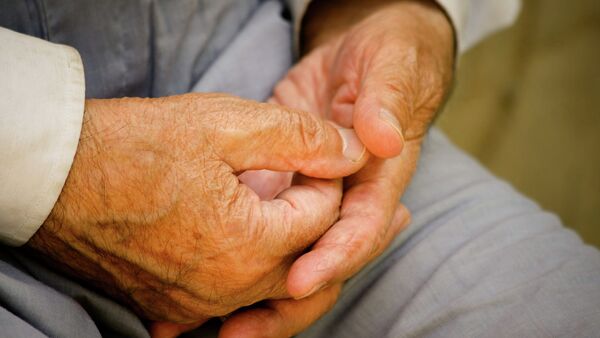Residents of some care homes in Britain are being asked to pay over £100 extra in weekly fees in order to cover rising costs of the coronavirus pandemic.
According to Age UK, a leading charity for elderly people, residents who have been fronting their own fees have seen costs increase to pay for personal protective equipment (PPE) as well as rising staff costs.
One of the charity directors, Caroline Abrahams, said on Saturday that older people and their families have "been through the mill" during the pandemic as 1 in 3 care homes in the UK have seen coronavirus outbreaks.
"It is adding insult to injury that after going through so much, some residents who pay for their own care are now facing a big extra bill - on top of already expensive fees," she said.
Abrahams called on the government to take action and cover the additional costs, warning that some homes are at a cliff-edge and risk having to close, leaving residents homeless.
The government has so far given £600 million worth of funds to infection control in care homes, with an additional £3.2 billion for other council services.
Cos it’s the weekend it isn’t up on our website yet but will be Monday I expect. Meanwhile here’s an excerpt pic.twitter.com/NbttRQYXE9
— Caroline Abrahams (@Car_Abrahams) June 6, 2020
Those who self-fund their stay have had to pay extra costs than those being supported by local authorities, providing an effective subsidy to the system for years.
According to Age UK, these residents pay around £850 a week on average. These already high costs have now surged by 15% as a result of spending introduced to combat the pandemic.
Residential homes aren't just facing rising costs due to the recruitment of extra agency staff when regular staff are off, but the increased spending on PPE and sanitising equipment.
The total number of homes experiencing rising costs of self-funding residents is currently not known. Of the 400,000 residents in England living in care homes, around 167,000 are self-funding, with an extra 45,000 partly-funding their stay.
A Private Problem?
Care homes in the United Kingdom have been at the forefront of the coronavirus pandemic. As of May, more than 20,000 residents have died as a result of the pandemic, according to the UK Office for National Statistics (ONS), while the national death tolls stand at 40,261 from Saturday.
Care homes in the United Kingdom do not fall under the country's National Health Service (NHS) as a public provision but are instead owned privately.
In April, Age UK said that there was a "degree of hesitation" over who bears responsibility for the crisis due to their private status. Caroline Abrahams explained that while care homes fall outside of the NHS, they are not "part of the community" either.
Age UK has clarified that it does not blame individual care homes for the funding crisis, however.
A report released in May by think-tank Common Weal outlined that privatisation of care facilities in Scotland - where more than half of Covid-19 deaths have been counted, has "minimised" the necessary medical services and led to a decline in capacity.
Director Robin McAlpine said the report "makes painful reading".
"But the problem is more fundamental. Scotland's care sector is almost all privatised and is run largely like a property speculation industry, which has minimised the more expensive medical services it provides".
In a survey by Community Care in April 2011, two-thirds of adult social care workers said that the quality of adult care has declined since the widespread outsourcing since the 1990s.





